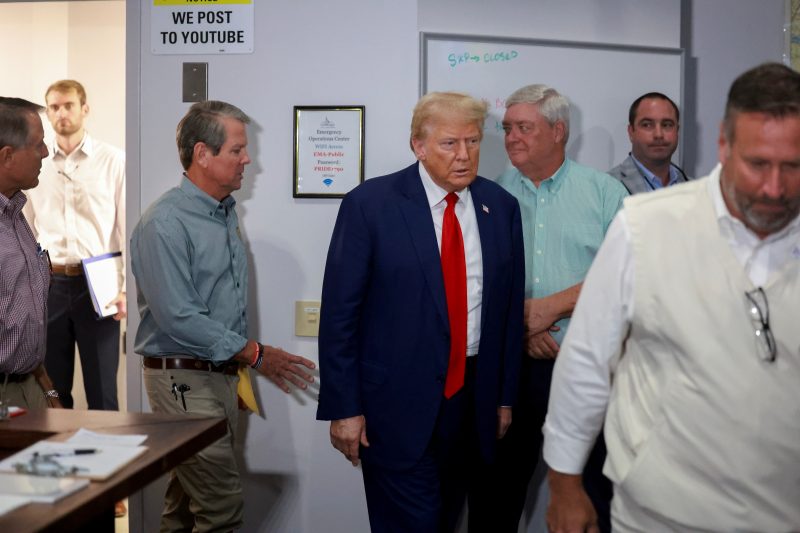In the wake of natural disasters, the dissemination of accurate information is of paramount importance to ensure public safety and welfare. Unfortunately, some political figures have been known to exploit these situations for their own gain, spreading misinformation rather than facilitating genuine assistance. One such example is former President Donald Trump, whose track record in handling natural disasters has been marred by a consistent pattern of misinformation and misleading statements.
During his presidency, Trump faced various natural disasters, from hurricanes to wildfires, where his response often left much to be desired. In Puerto Rico, after Hurricane Maria devastated the island in 2017, Trump downplayed the severity of the situation and made false claims about the federal government’s response efforts. He famously threw paper towels into a crowd during a visit to the island, sparking outrage and criticism for his lack of empathy and understanding of the crisis at hand.
Similarly, Trump’s response to wildfires in California was riddled with misinformation. He repeatedly blamed forest mismanagement for the fires, disregarding scientific evidence that climate change played a significant role in exacerbating the conditions that led to the wildfires. By spreading false narratives, Trump not only failed to address the root causes of the issue but also hindered efforts to implement effective solutions and support for the affected communities.
Furthermore, in the aftermath of Hurricane Dorian in 2019, Trump falsely claimed that the storm was projected to hit Alabama, leading to confusion and backlash from meteorologists and public officials. Despite being corrected by the National Weather Service, Trump continued to assert his misinformed stance, raising concerns about his credibility and competency in handling emergency situations.
The consequences of peddling misinformation during natural disasters are far-reaching and can have severe implications for public safety and response efforts. By sowing confusion and distrust, leaders like Trump undermine the coordination of emergency response teams, delay critical aid to affected areas, and erode public confidence in the government’s ability to effectively manage crises.
Moving forward, it is imperative for political leaders to prioritize the dissemination of accurate and reliable information during natural disasters. Transparency, honesty, and a commitment to evidence-based decision-making are essential to ensure the well-being of the population and to mitigate the devastating impacts of these catastrophic events. By learning from past mistakes and holding leaders accountable for their actions, we can strive to create a more resilient and responsive system for disaster management and relief efforts.

